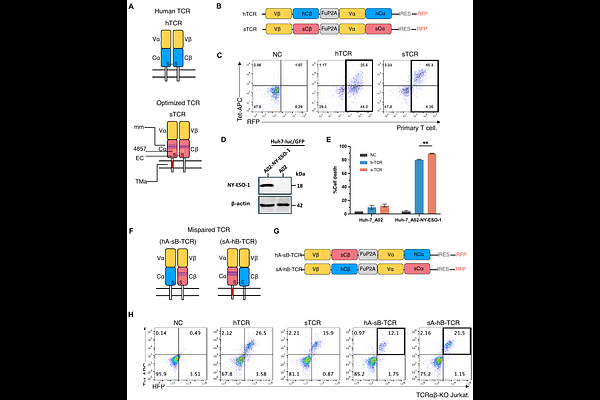Targeted Ablation of Canonical Disulfide Bonds Mitigates TCR Mismatching in Engineered T Cells

Targeted Ablation of Canonical Disulfide Bonds Mitigates TCR Mismatching in Engineered T Cells
Su, D.; Liu, G.
AbstractT cell receptor-engineered T (TCR-T) cell therapy holds distinct advantages over chimeric antigen receptor (CAR)-T cell therapy in treating solid tumors by exploiting intracellular targets through MHC-mediated antigen presentation. Despite this potential, only one TCR-T therapy has received FDA approval to date. A key challenge lies in chain mispairing between exogenous therapeutic TCR chains and endogenous TCR chains, which compromises membrane localization efficiency and elevates off-target toxicity risks. While multiple engineering strategies have been developed to enhance TCR surface expression, our systematic evaluation using a novel mispairing assessment platform revealed that conventional approaches may paradoxically exacerbate chain mismatching. Through targeted cysteine mutations that disrupt the native interchain disulfide bonds in TCR constant domains, we achieved a substantial reduction in exogenous-endogenous TCR mispairing. Importantly, these structural modifications preserved both high surface expression level and potent tumor-specific cytotoxicity. This innovative engineering approach establishes a critical foundation for clinical- grade manufacturing of TCR-T therapies with enhanced safety profiles.